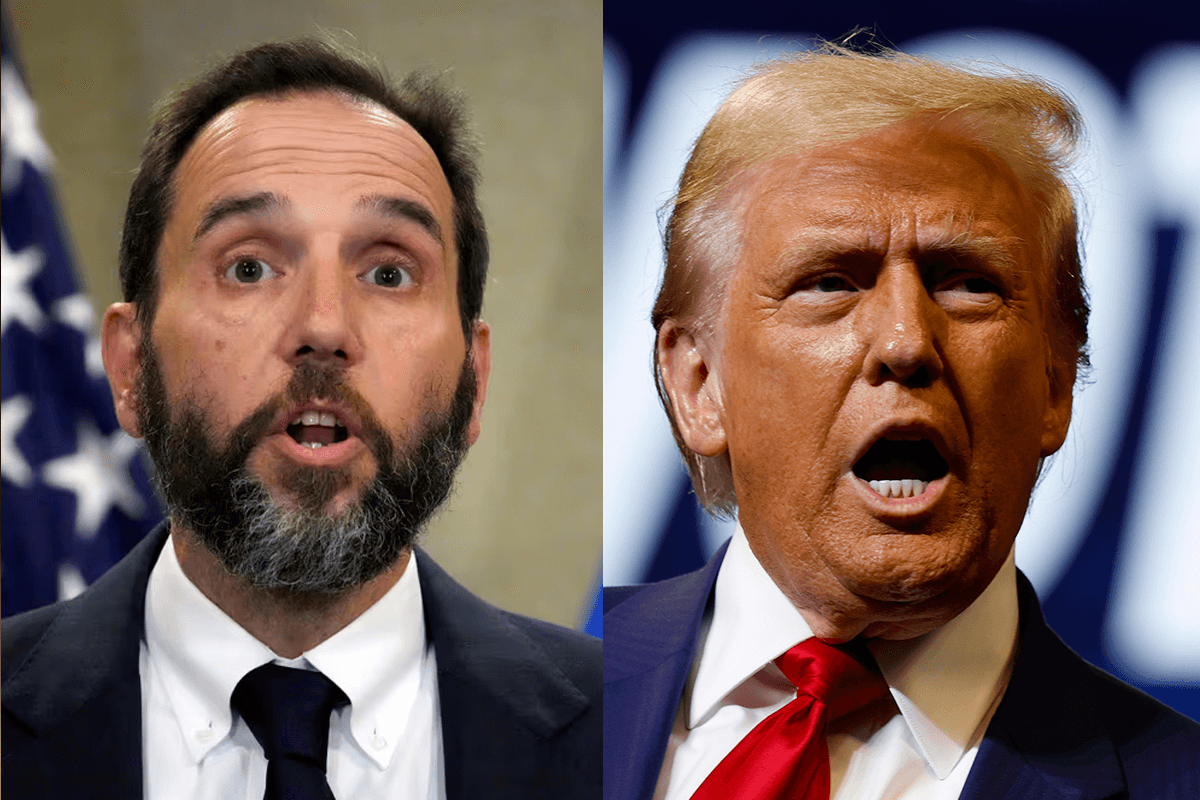Jack Smith, Reeling From Trump’s ‘Unprecedented’ Comeback, Retreats and Asks for Time To Regroup
The request for a delay could be a prelude to dropping the charges before the 45th president becomes the 47th.

Special Counsel Jack Smith’s request that Judge Tanya Chutkan vacate all remaining deadlines — a freeze with respect to filings — in his election interference case against President Trump signals that the prosecution could be winding down in the wake of Tuesday’s election. Judge Chutkan granted the request on Friday.
The petition cites Trump’s election to a second term as an “unprecedented circumstance.” He asks for more time to “determine the appropriate course going forward consistent with Department of Justice policy.” Mr. Smith tells Judge Chutkan that he will report back on December 2 and that he has already consulted with Trump’s legal team, which does not object to the pause in the proceedings.
The retreat reflects the new legal reality in the wake of Trump’s electoral victory over Vice President Harris. The Supreme Court, in Trump v. United States, already ruled that all official presidential acts are presumptively immune from prosecution. Policy long promulgated by the Department of Justice bars taking any criminal action against a sitting president.
Before Mr. Smith asked for a delay, Trump’s lawyers were laboring under a deadline of November 21 to submit their arguments for why the holding of Trump barred any further proceedings in the case. Mr. Smith, in a book-length opus, contended that Trump “must stand trial for his private crimes as would any other citizen.” Beginning on January 20, Trump will no longer be a private citizen in the eye of the Supreme Court’s jurisprudence.
This is only the second time that Mr. Smith has requested a delay in the election interference case. The first was after Trump was handed down, and the special counsel told Judge Chutkan that he required more time for consultations “with other components of the Justice Department,” including Attorney General Garland. Mr. Smith returned from that hiatus with a vengeance in the form of his immunity opus arguing for Trump’s conviction.
The special counsel’s position has grown more dire now that Trump is set to move back into the White House. Once he does, he will possess the power to name a new attorney general who can fire Mr. Smith — with “good cause” — and drop his prosecutions and dismiss his charges. Trump told a radio host, Hugh Hewitt, that he intends to fire the prosecutor “within two seconds” of becoming president. It is likely among Trump’s top priorities.
Once Trump is president again, he will also hold the pardon power, which the Constitution ordains extends to “offenses against the United States”; that has been interpreted to mean federal crimes. While a president has never pardoned himself, the Supreme Court ruled in Trump that the pardon is among the prerogatives that is within the “conclusive and preclusive” authority of the president — and absolutely immune.
Alexander Hamilton, in 74 Federalist, contends that the “benign prerogative of pardoning should be as little as possible fettered or embarrassed. The criminal code of every country partakes so much of necessary severity, that without an easy access to exceptions in favor of unfortunate guilt, justice would wear a countenance too sanguinary and cruel.” In oral arguments over Trump, the justices contemplated that a president could self-pardon.
All of this puts Messrs. Smith and Garland in a difficult situation. Reports from NBC News and others indicate that they are weighing how to unwind the cases that accuse Trump of crimes with respect to January 6 and the storing of classified documents at Mar-a-Lago.
One legal scholar, Joshua Blackman, tells the Sun that what the justice department plans for the election interference case “is not clear.” If Mr. Smith decided to press on, he would likely precipitate a clash over the president’s power to fire a special counsel, a question that would appear ticketed, eventually, for the Supreme Court.

